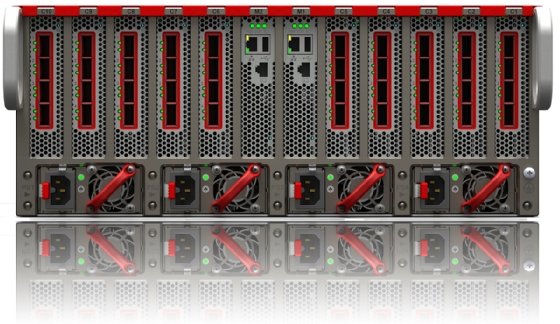
Getty Images
NVMe-oF storage provider Pavilion Data raises $45 million
NVMe-oF startup Pavilion Data completed a series C1 funding with an additional $45 million, while keeping its focus on helping customers tackle modern workloads.
Pavilion Data Systems, a flash startup, raised $45 million in its latest funding round and recently touted its successes in 2021.
The funding round, led by Kleiner Perkins and Artiman Ventures, brings the total capital raised to $107 million, according to the vendor.
Pavilion's product architecture is based on NVMe-oF and built-in high-performance network switching instead of relying on traditional storage controllers. Pavilion was an early pioneer in NVMe-oF, launching its first array for rack-scale applications in 2018. Now the vendor is focused on providing high-performance storage for modern, data-intensive workloads such as for artificial intelligence and machine learning (ML).
"Our strategic roadmap is paramount," Dario Zamarian, CEO of Pavilion Data, said in an interview with SearchStorage. "We can't just rest on today's claims and technology."
What Pavilion brings to the table
Pavilion, founded in 2014 and based in San Jose, Calif., is a computational storage startup, where data is processed at the storage device level. Its flagship product is the Pavilion HyperParallel Flash Array, powered by Pavilion HyperOS.
The array has a storage density of up to 2.2 petabytes of NVMe storage in a 4U footprint, with performance at 120 GBps read, 90 GBps write, 20 million IOPS read and latency as low as 25 µs, giving high performance to demanding workloads in a compact footprint, the vendor said. The array can scale linearly as well, and more systems can be added for more capacity and performance. It provides up to 20 active-active controllers with no single point of failure.

The HyperParallel Data Platform is designed for massive parallel processing, using more than one controller to process different parts of the same data and improve performance.
"In addition to its own core solution, [Pavilion] also has the ability to host more traditional parallel file systems on top," said Ken Clipperton, an analyst at Data Center Intelligence Group. "For organizations that have been working for a long time with parallel data storage, they can put the Pavilion hardware underneath to get behind the software parallelism."
He also noted that organizations are increasingly embracing AI and ML workloads for the first time, including genomic-type workloads in healthcare and drug development.
"[Pavilion's] linear performance and capacity scaling is built for serious workflows," Clipperton said. He added that "enterprises embracing AI-type workloads for the first time [may see that] their existing storage solutions aren't designed to handle that set of workloads or that level of performance necessary to provide timely insights."
Zamarian said that instead of using terms like AI or ML, which people use "without particular level of specificity," Pavilion is focused on performance, building a type of storage that can produce results faster, within the needed time frame, which ultimately benefits AI applications and data processing.
Although the computational storage market is small, Zamarian refused to be labeled a niche player, arguing that this is a steadily growing area, as all enterprises and federal agencies will eventually need to manage modern workloads to compete.
Successes from 2021
As a private company, Pavilion doesn't disclose financial numbers, but Zamarian said it doubled its net-new customers, while three-quarters of customers acquired in 2020 became repeat customers in 2021. He also noted that the startup increased its presence in Fortune 500 companies with three large financial institutions.
Pavilion built out its executive team in 2021 with Zamarian as the new CEO replacing Gurpreet Singh. The company also added a new senior vice president of software engineering, Anil Virmani, and vice president of operations, Chethan Bachamada.






